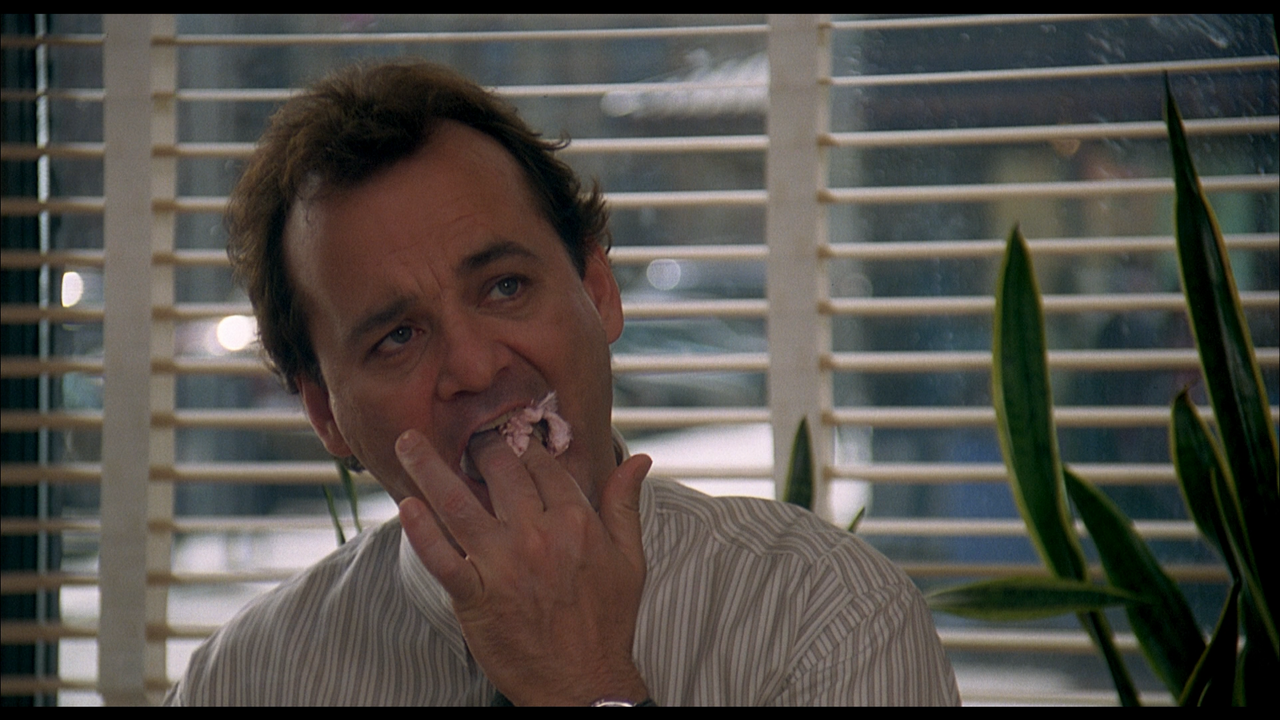5 Groundhogs, Integral Ecology, and the Meaning of Life
Madeline Fox

A photo I took to celebrate the Early Spring announcement of 2019. It’s difficult to show the extent of my family’s Groundhog’s Day celebration in one photo, so click here if you’d like to see more.

Every year, my family hosts a celebration that emphasizes hope, freedom from depression, and a love of Creation. This celebration is so intense and widespread that there is not a soul who has known my family for a full year who doesn’t know of it. Most calendars name this holiday on February second Groundhog Day. We have erroneously called it “Groundhog’s Day” since we began celebrating it over 15 years ago, which is likely a Freudian slip to show that the day belongs to the rodents, not to us. Many people are surprised when they step into my house in the month of January, as they find a groundhog flag, a dozen groundhog plushies, Bible verses about hope hung on the walls, live plants with twinkle lights, and hundreds of cupcakes and cookies decorated to look like groundhogs. Often, the movie Groundhog Day (Ramis, 1993) will be playing on the TV. This is not simply because the movie is about groundhogs, but because it represents many of the values my family celebrates: overcoming the depression of a selfish lifestyle, embracing our creative leanings, and finding worth and pleasure in doing good for others. February second reminds us that by abandoning ideals of egoistic hedonism and embracing a life of virtue, we will not only see our own lives grow richer and more joyful, but the social and ecological world around us will flourish as well.
At the beginning of the movie Groundhog Day, the main character Phil Connors views everything and everyone around him as a means to an end, that end being pleasure. At the beginning of the film, Phil Connors discovers that every morning at 6am, he wakes up and restarts the same day with the same series of events. Once he grows used to the repetition, he uses his knowledge to bring himself more pleasure by manipulating the people around him. This quest for satisfaction embodies all of the vices that Philip Cafaro and Ronald L. Sandler argue cause environmental degradation: gluttony, arrogance, greed, and apathy (Sandler & Cafaro, 2005). Knowing that nothing he does will affect him the next day, Phil demonstrates gluttony by gorging himself on food at a restaurant, arrogance in believing that he can seduce any woman in Punxsutawney if he uses the right words, greed by stealing money from people while their guard is down, and apathy by failing to consider how his actions make others feel, assuming it doesn’t matter if they won’t remember it when he wakes up the next morning. It’s easy to condemn Phil because we can easily see the negative consequences of his vices, but many of us demonstrate the same attitude toward the environment as Phil does toward Punxsutawney in a way that’s more difficult to see. It’s easier to be gluttonous when we consider overconsumption a part of the American dream; it’s easier to be arrogant when technology has given us the confidence to believe we’re invincible to climate change (despite the warnings of 97% of climate scientists); it’s easier to be greedy in our extraction of public resources when the prosperity gospel has woven its way into our culture to glorify the rich; it’s easier to be apathetic to the plight of exploited communities when we have never visited them and we are living comfortable lives ourselves. These vices are all consequences of egoistic hedonism, or self-centered pleasure seeking.

Egoistic hedonists are willing to seek their own pleasure at all costs, even at the expense of others. However, the movie Groundhog Day demonstrates that egoistic hedonism is actually ineffective at bringing anyone pleasure. Joseph H. Kupfer describes this by saying:
“Groundhog Day tries to show why a life of egoistic hedonism is necessarily self-defeating and filled with ironies. Egoistic hedonists look at actions merely as the means to pleasure, their own pleasure in particular. […] As a consequence, hedonists miss out on the enjoyment of activities that are done for their own sake. They are thereby also deprived of the delight found in realizing their moral, intellectual, and artistic potential in those activities. The irony is that a life of hedonism is actually much less pleasant than a virtuous one” (Kupfer, 1999).
It is a bit difficult to relate to Phil in the sense that none of us have (literally) experienced the same day repeating over and over again. Perhaps because of my affinity for groundhogs, I did not understand how Phil could possibly grow bored of experiencing what Punxsutawney had to offer on Groundhog Day until I related it to a popular video game.

The Sims is a game in which you design characters, build and decorate houses for them, and help them live their lives. Each sim has emotions, whims, aspirations, and physical needs to attend to, and the game can be played in one of two ways. The first: to maintain your sim’s health, hygiene, and emotional state enough to build up their career, using the money to buy things that satisfy their needs faster so that they have time to participate in activities that are less tedious for the player. The second: to use cheat codes to give your sim massive amounts of money, career promotions, and disable their need decay so that you can get to the fun parts faster. Every time I play the Sims, I spend one day playing it the correct way, and then I turn on the cheat codes so I have more time to grow a garden, go exploring, or attend events. However, when I use cheat codes, I quickly become bored of the exciting parts of the game and abandon it for several months. When I exercise too much power and cheat in The Sims to make the game more fun for myself, I miss out on the joy of playing the game for its own sake. Similarly, when Phil Connors exercises too much power and manipulates the people around him as mere means to bring himself pleasure, he finds no satisfaction in it. Instead, he falls into despair and tries to commit suicide in a variety of ways, only to wake up alive every time. Thus, even when Phil Connors doesn’t need to consider whether or not his selfish actions are sustainable like we do in environmental contexts, egoistic hedonism doesn’t bring him pleasure. By exploiting resources for our personal gain, we not only sacrifice the happiness of other people, but we sacrifice our own happiness as well.
A life of virtue, however, leads to a less monotonous and more purposeful life. Hannah Arendt, a political philosopher, spends a large part of a lecture titled, “Freedom and Politics” discussing principles and virtue, which demonstrates that virtue is as important to our inner freedom as it is our political freedom (Arendt, 1960). She describes a principle as a value similar to a sheet of music: a sheet of music contains a song, but the music only exists in the world as long as it is being played. Phil Connors serves as an interesting example of this metaphor, as he begins to build virtue by taking piano lessons. This action brings both music and discipline into his world. Arendt writes that principles can be either vices or virtues, listing honor, glory, love of equality, excellence, fear, distrust, and hatred as examples. Thus, as Phil Connors switches his tune from egoistic hedonism to moral excellence, his world becomes more excellent as well. When a person acts on virtues as opposed to vices, Arendt argues that they “interrupt a natural series of events or automatic processes in whose context they constitute the wholly unexpected,” calling these “new and unpredictable” events miracles. Phil Connors lives a life of monotony and despair until he begins to act on virtue, and when he does, his whole world begins to change. The person he seeks most to impress, a virtuous woman named Rita, tells Phil, “That was surprising. I didn’t know you were so versatile,” when he displays empathy, enthusiasm, and discipline while reporting the news. Phil replies, “I surprise myself sometimes.” The repetition of Groundhog Day makes Phil’s world predictable and boring. However, Kupfer points out that Phil has the capacity to change himself by setting long term goals to develop his skills in art, music, and literature, which changes not just his abilities but his moral character as well. Phil becomes the “new and unpredictable” miracle that he needs to escape the monotony of Groundhog Day, playing songs of compassion and love and attentiveness to others so loudly that they bring joy to not only himself, but the entire town.
The movie Groundhog Day shows that bringing joy to others is the most effective way to seek pleasure for one’s own self, but I believe there are spiritual and environmental dimensions to this theory, as well. One of the better articles I found that discusses the spiritual elements of Groundhog Day focuses on its similarities to Catholicism and Buddhism, as well as engaging the ideas of the protestant theologian Reinhold Niebuhr. The movie closely parallels the Catholic idea of purgatory, a place where souls must stay until they are sinless enough to enter heaven. The movie also implies that Rita herself is a Catholic when she says, “You’re not a god. You can take my word for it; this is 12 years of Catholic school talking.” Buddhism is also particularly important to the movie, as it was written by Zen Buddhist Danny Rubin and directed by the self-described “Buddish” Harold Ramis. These parallels can be seen through the concept of reincarnation and karma—Phil must subject himself to years worth of rebirths before his good karma allows him to reach enlightenment and achieve an earthly form of Nirvana by getting a happy ending. Niebuhr was brought into the article in reference to Phil’s futile attempts to save a dying man, referencing the serenity prayer (Niebuhr, 2004):
God, grant me the serenity to accept the things I cannot change,
The courage to change the things I can,
And the wisdom to know the difference.
The article concludes by claiming that a person doesn’t need to subscribe to Christianity or Buddhism for the story of Groundhog Day to be relevant to their life (Allan, 2017), and I believe Catholic, Buddhist, and Protestant perspectives can demonstrate how caring for the environment is a critical element of overcoming egoistic hedonism.
Pope Francis in his encyclical Laudato Si’ refers to the interconnection of God, the self, the other, and the world as “integral ecology.” He describes this interconnection by saying, “Today, the analysis of environmental problems cannot be separated from the analysis of human, family, work-related and urban contexts, nor from how individuals relate to themselves, which leads in turn to how they relate to others and to the environment” (Paragraph 141) (Pope Francis, 2015). Later in the encyclical, in paragraph 233, he describes that every piece of creation—biotic and abiotic—is a key to understanding God. Many times, Christianity in all forms emphasizes that Jesus Christ is with us always, and that we need to search our souls to find him. However, Pope Francis points out that there is also God to be found in other people, in animals, and even in dewdrops. The egoistic hedonist fails to develop enough as a person to see God within themselves, but they do not care enough about others to see the goodness outside of themselves, either. All they care about is empty pleasure. Pope Francis says in paragraph 204, “The emptier a person’s heart is, the more he or she needs to buy, own and consume.” This is obvious for Phil Connors—he fills his own emptiness by stealing money and gorging himself with food. However, these things don’t satisfy him, so he uses and discards them. He learns enough about a woman named Nancy to seduce her, but he grows tired of her and ignores her for most of the rest of the story. Eventually, he grows tired of himself and tries to dispose of himself, too. This is a brilliant example of what Pope Francis says about a “throwaway culture.” In paragraph 123, he says that the same “use and throw away” logic that causes people to take advantage of each other or treat each other like objects also “generates so much waste, because of the disordered desire to consume more than what is really necessary.” This mindset that leads people to believe that taking care of the environment is a chore and a hindrance to their happiness actually causes them to be unhappy, and it also causes them to fail to love other people. When Rita tells Phil that he will never love anyone but himself, he replies, “That’s not true, I don’t even like myself.” Throwing away the throwaway mindset is precisely what causes people to be happy—it allows them to see not only the value in the things they consume, but also more value in themselves, in others, in the planet, and in God.
David R. Loy, a Buddhist, speaks similarly of what he calls “healing ecology” and the suffering inherent in self-centered pleasure seeking. Dukkha is a Buddhist term typically translated as suffering, and Loy argues that “it’s no exaggeration to say that for Buddhism the self is dukkha” (Loy, 2010). However, while Pope Francis would likely say that egoistic hedonism causes suffering because it prevents a person from doing what is truly good for themselves, Loy would argue that egoistic hedonism causes suffering because there is no “ego” to begin with. The self is a construct, as is human civilization. Any dualist mindset that divides the universe into the self and the other, the we and the them, is not founded in reality, and thus causes insecurity and anxiety. Loy argues that every part of the universe is connected, all made up of the same basic components. A carbon atom can be found in a diamond, in fossil fuels, in a tree, or in a human. By assuming we are comprised of pieces separate from the world around us, we deceive ourselves:
We are an integral part of the natural world. That also means embracing our responsibility for the welfare of the biosphere, because its well-being ultimately cannot be distinguished from our own well-being. Understood properly, then, humanity’s taking care of the earth’s rainforests is like me taking care of my own leg.
Loy also describes this in the context of the bodhisattva path, a Buddhist concept in which a person who has achieved enlightenment has the ability to leave this world of dukkha, but chooses to stay to help others. However, Loy argues that if everyone is connected, it is impossible for a person to be truly enlightened unless everyone else is as well. Thus, if we wish to avoid the suffering of egoistic hedonism, we must work not only to save our fellow man, but also our planet.

Niebuhr also addresses egoistic hedonism in his own work, arguing that the root of insecurity and anxiety is human finiteness and freedom (Niebuhr, 1941). In Phil’s case, he has the freedom to do whatever he wishes to in Punxsutawney, but he is finite in the sense that he cannot leave. Interestingly, Niebuhr claims that the anxiety of human finiteness typically revolves around death, but Phil is finite in the sense that he cannot die. Regardless, his finiteness does indeed lead to anxiety and despair. Niebuhr describes that people try to overcome this dilemma of finite freedom in one of two ways[1]: the first, being so prideful that one denies their own finiteness; the second, trusting God. Pride is a poor way of easing one’s anxiety, however, as it puts man in the position of God, and man is vastly inferior. This can be seen quite clearly when Phil tells Rita, “I am a god. […] I’m a god. I’m not the God, I don’t think. […] I didn’t just survive a wreck; I wasn’t just blown up yesterday. I have been stabbed, shot, poisoned, frozen, hung, electrocuted and burned. Every morning I wake up without a scratch on me, not a dent in the fender: I am an immortal.” But just as he cannot kill himself, he cannot save others, either, as can be seen when he tries and fails to save the life of an old man. The doctor attempts to tell him, “He was just old. It was just his time. […] Sometimes people just die,” but Phil struggles for a while to try and save him regardless. Even in his kindness, he still has pride that leads to anxiety.
Niebuhr was not alive when modern environmental problems gained great publicity and he therefore did not say much on the matter, but a course I took at the protestant school Taylor University can provide insight on why the natural world is a critical part of turning from pride to trust in God. “Foundations of the Christian Liberal Arts” was a mandatory first-year course taught by four different professors. Each professor lectured on a different piece of finding intentional community as we transitioned from high school to college, and each had their students read a different book. The first professor lectured about how to better love ourselves, the second how to love others, the third how to love God, and the fourth how to love Creation. As the semester progressed, it became increasingly obvious that these four topics were impossible to separate. Dr. Jeff Cramer taught the section on loving Creation, lecturing based on Skye Jethani’s book Futureville (Jethani, 2014). In it, Jethani analyzes the Genesis creation story to discover what, in a perfect world of Eden, man’s purpose was intended to be. He ultimately determines that God’s instructions to tend to the garden, name the animals, and be fruitful and multiply reflect that humanity’s purpose is to cultivate beauty, order, and abundance. However, these three elements can easily be distorted by pride. To escape the fear of death, people distract themselves with objects of beauty, they buy life insurance[2] and write wills, and they hoard money and goods so that they do not have to fear of dying from a lack on income. The beauty, order, and abundance cultivated by egoistic hedonism results in materialism and exploitation.
That revelation came into focus as I wandered through a grocery store to analyze consumer culture (courtesy of chapter 12 in this textbook). The products were all designed by artists to be appealing to the eye, mechanisms were built into the shelves to push products to the front and create a sense of order, and retail workers continually refilled shelves that were not empty. However, Kupfer has quite a bit to say about how pursuing beauty in the forms of art, music, and literature for their own sakes—as opposed to being a mere means to an end—leads to moral development and pleasure. Jethani would likely argue that the pursuit of beauty, order, and abundance for their own sakes leads to this positive outcome because it is what God created us to do. Because the original call to cultivate beauty, order, and abundance was in reference to tending the garden of Eden, it is foolish to attempt to separate that call from nature now. We must appreciate beautiful things for their beauty, orderly things for their order, and abundant things for their abundance, as they are keys to understanding God himself. When we seek these things for their own sakes, we find God in them. This allows us to trade our pride and egoistic hedonism for a greater trust in God, because it is impossible not to trust a God found in the reflection of the sunset off of ocean water, the mathematical sequences found in pineapples and pinecones and sunflowers, or the blinking of thousands of fireflies underneath a sky of countless stars.

Punxsutawney Phil’s weather predictions are correct 39% of the time (Stormfax Weather Almanac, 2019). Notably, given that there are only two options, this is not all that accurate. I don’t mind this– on years where Phil predicts an Early Spring, I cheer, and on years where Phil predicts six more weeks of winter, I shrug it off and say, “I mean, he’s usually wrong anyway.” Either way, I get to stop and appreciate that winter may be ending soon. Every year, however, when the temperature drops after February second, someone complains that the groundhog doesn’t deserve to be celebrated, as if the groundhog has no worth if it cannot live up to our ridiculous expectations that it predict the weather (even though Phil does not actually predict the weather– his handler merely holds him up and looks for a shadow. If Phil were actually a master meteorologist, we would never know). Regardless, how much joy are those people missing out on for failing to enjoy groundhogs simply because they deserve to be enjoyed? As Phil Connors shows, there is far more pleasure to be found in valuing things for their own sake than to be found in exploiting them. In groundhogs, my family finds hope for growth and revival in the most depressing month of the year, the freedom to fail 61% of the time and still know we’re worth celebrating, and a deeper connection to our Creator. And it is this sort of appreciation for nature that I believe can solve not only our ecological crisis, but also many of our human ones.
References
Allan, D. G. (2017, February 02). ‘Groundhog Day,’ the Buddhist lifehacker movie. Retrieved April 15, 2019, from https://www.cnn.com/2016/02/01/health/groundhog-day-movie-wisdom-project/index.html
Arendt, H. (1960). FREEDOM AND POLITICS: A Lecture. Chicago Review, 14(1), 28-46. Retrieved from http://www.jstor.org/stable/25733551
Jethani, S. (2014). Futureville: Discover Your Purpose for Today by Reimagining Tomorrow. United States: Thomas Nelson.
Kupfer, J. H. (1999). Visions of virtue in popular film. Boulder, CO: Westview Press.
Loy, D. R. (2010). Healing Ecology. Journal of Buddhist Ethics, 17. Retrieved April 15, 2019, from http://www.buddhistethics.org/
Niebuhr, R. (1941). The nature and destiny of man: A Christian interpretation. London: Nisbet.
Niebuhr, R. (2004). The Serenity Prayer. Retrieved April 15, 2019, from http://www.sandersweb.net/ed/OriginalSerenityPrayer.html
Pope Francis. (2015). Laudato si’, On care for our common home. Vatican City: Libreria Editrice Vaticana.
Ramis, H. (Director), Ramis, H. (Producer), & Ramis, H., & Rubin, D. (Writers). (1993). Groundhog day[Motion picture on DVD]. United States: Columbia Pictures.
Sandler, R. L., & Cafaro, P. (2005). Environmental virtue ethics. Lanham, MD: Rowman & Littlefield.
Stormfax Weather Almanac. (2019, February 2). Groundhog Day History. Retrieved November 19, 2019, from http://www.stormfax.com/ghogday.htm.
- Niebuhr mentions a third alternative as well: one of sensuality, an inordinate love for temporary physical pleasures. One doesn’t need to address their existential crises if they can find a suitable distraction, but as Phil discovered, those distractions can only last for so long. However, he does find lasting fulfillment in the temporary physical pleasure of ice sculpting, as he does this not as a distraction from his world but as a way to make his world more beautiful. ↵
- Interestingly, Phil Connors subverted this when he bought a significant amount of insurance from Ned Ryerson, an old classmate, and it symbolized the acceptance of his own finiteness as opposed to a desire to defy it. Ryerson enthusiastically tells Rita, “He comes to me and buys whole life, term, uniflex, fire, theft, auto, dental, health… with the optional death and dismemberment plan, water damage.” Interestingly, I noticed parallels between this list and the ways we had previously seen Phil cause himself harm. He catches on fire when he drives off a cliff in a car he stole (fire, theft, and auto), he eats irresponsibly while joking that he doesn’t need to floss (dental), he steps in front of a truck (death and dismemberment), and he brings a toaster into the bathtub with him (water damage). By buying life insurance, Phil demonstrates that he has accepted his own mortality, and the next day after his purchase, he wakes up on February third, finally having escaped his inability to die. ↵
